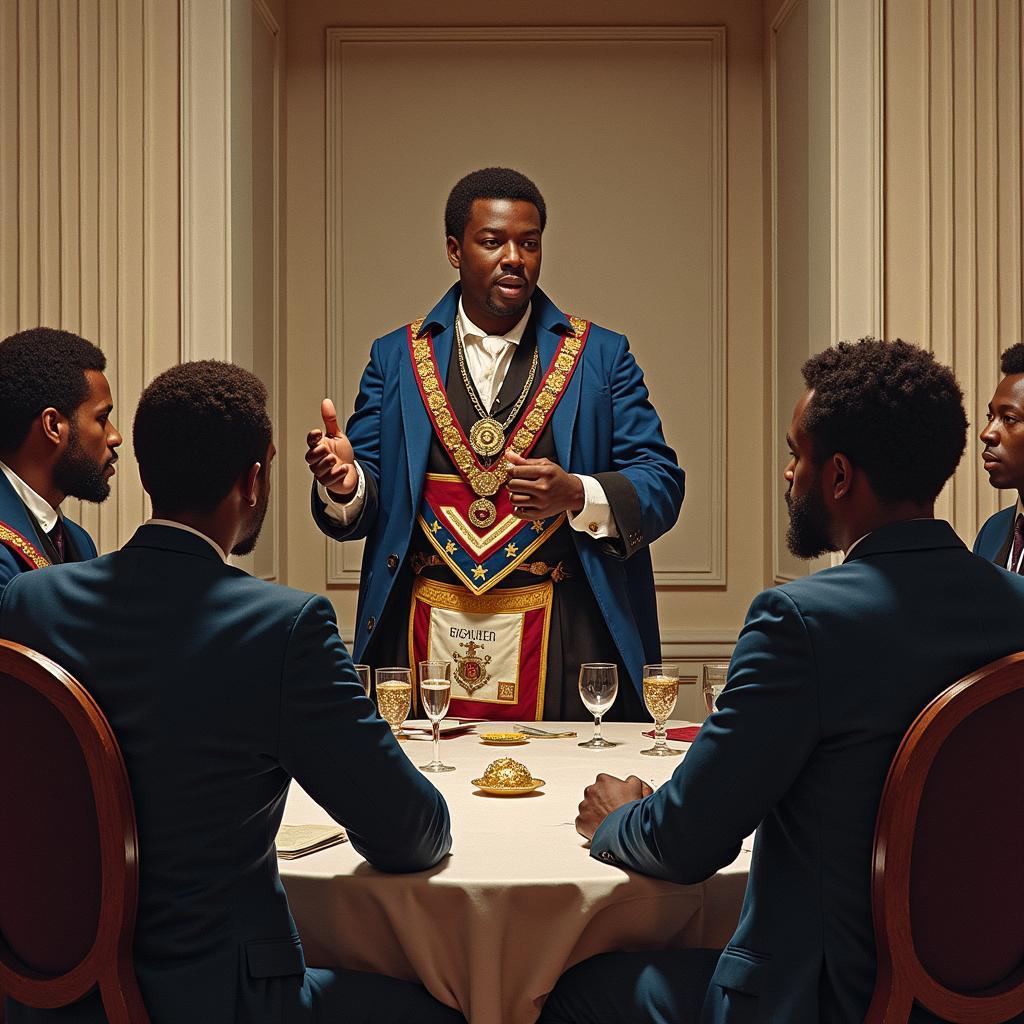Uncovering the Forgotten Legacy: African American Founding Fathers
The term “African American Founding Fathers” often sparks debate, challenging conventional narratives of early American history. While not officially recognized as “Founding Fathers” in the traditional sense, numerous African Americans played crucial roles in shaping the nation’s foundation during and after the Revolutionary era. Their contributions, often obscured or minimized, deserve recognition and exploration. This article delves into the lives and legacies of these influential figures, illuminating their impact on the fight for independence, the development of American culture, and the ongoing struggle for equality.
Who Were These Unsung Heroes?
One key figure is James Armistead Lafayette, an enslaved African American who served as a double agent during the Revolutionary War, providing crucial intelligence to the Continental Army while posing as a British spy. His courage and strategic thinking significantly contributed to the American victory at Yorktown. Another notable figure, Prince Hall, championed education and fought for the rights of free Black people. He established the first African Masonic lodge in America, providing a vital platform for community organization and advocacy. These individuals, along with many others, demonstrated resilience and determination in the face of adversity.
 Prince Hall Leading an African Masonic Lodge Meeting
Prince Hall Leading an African Masonic Lodge Meeting
The Fight for Freedom and Equality
African Americans participated in the Revolutionary War on both sides, motivated by various factors including the promise of freedom and the desire to escape enslavement. Some, like Crispus Attucks, a free Black man, lost their lives in the fight for liberty. Attucks, widely considered the first casualty of the Boston Massacre, became a symbol of resistance against British oppression. These individuals’ participation in the war highlights the complex and often contradictory nature of the American Revolution, juxtaposing the ideals of liberty with the brutal reality of slavery.
Looking back at figures like Phillis Wheatley, whose eloquent poetry challenged prevailing notions about race and intellect, we see a persistent fight for recognition and equality. Her literary achievements during the era serve as a powerful testament to the intellectual capacity of African Americans, defying the racist ideologies that sought to diminish their humanity.
A Legacy of Resilience
The contributions of these “African American founding fathers” extend beyond the battlefield and into the realm of social and political activism. They established schools, churches, and mutual aid societies, laying the groundwork for future generations of Black leaders. Their efforts to uplift their communities and advocate for their rights paved the way for the Civil Rights Movement and the ongoing struggle for racial justice. The impact of the African diaspora extends far beyond the borders of the United States. For example, the phenomenon of African diaspora literature reflects the diverse experiences and cultural expressions of people of African descent around the world. It is crucial to remember these intricate histories and influences.
Beyond the Battlefield: Shaping American Culture
African Americans played a significant role in shaping American culture during the early years of the republic. From music and dance to crafts and storytelling, their contributions enriched the nation’s artistic heritage. These cultural expressions often served as a form of resistance, preserving traditions and affirming identity in the face of oppression.
The Power of Storytelling
Oral traditions, passed down through generations, played a crucial role in preserving African American history and culture. These narratives, often imbued with spiritual and moral teachings, provided a sense of continuity and community in a society that sought to erase their identity.
The Influence of Music and Dance
African American musical traditions, including spirituals and gospel music, had a profound impact on American music. These musical forms, born out of the experiences of enslavement and the struggle for freedom, expressed both pain and hope, offering solace and inspiration to generations of African Americans.
A Continuing Conversation
The stories of these “African American founding fathers” challenge us to broaden our understanding of American history and recognize the multifaceted contributions of all its people. Their legacies remind us that the fight for equality and justice is a continuous process, demanding ongoing vigilance and commitment. It’s important to recognize the influence and history of African Americans, including acknowledging the presence of African Americans on dollar bills and understanding the establishment of an African country colonized by freed slaves. These stories offer a deeper understanding of African American contributions to global history and culture.
african americans on dollar bill
african country colonised by freed slaves
In conclusion, while the term “African American founding fathers” may not fit neatly into traditional historical narratives, it serves as a powerful reminder of the crucial roles played by African Americans in shaping the nation’s foundation. Their contributions to the fight for independence, the development of American culture, and the ongoing struggle for equality deserve recognition and celebration. By understanding their stories, we gain a more complete and nuanced perspective on the rich tapestry of American history.
FAQ
- Who is considered an “African American founding father”?
- What were some of the key contributions of African Americans during the Revolutionary era?
- How did African Americans contribute to American culture during the early years of the republic?
- Why is it important to recognize the contributions of “African American founding fathers”?
- What resources are available for learning more about these individuals and their legacies?
- How did enslavement impact the lives and contributions of these individuals?
- What are some ongoing debates surrounding the term “African American founding fathers”?
Need help? Contact us 24/7:
Phone: +255768904061
Email: [email protected]
Address: Mbarali DC Mawindi, Kangaga, Tanzania.


